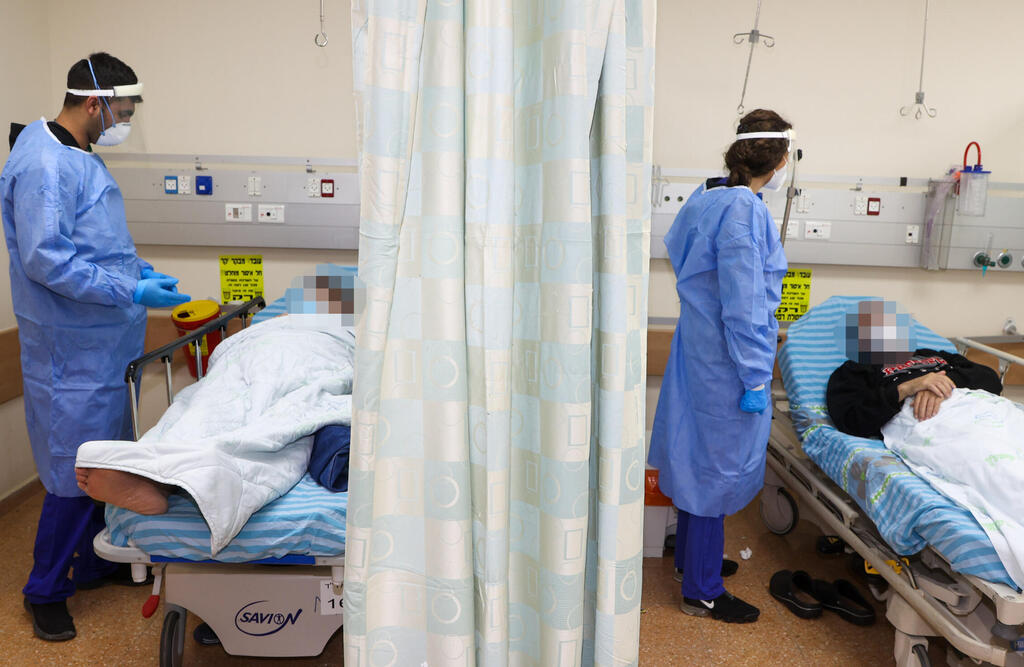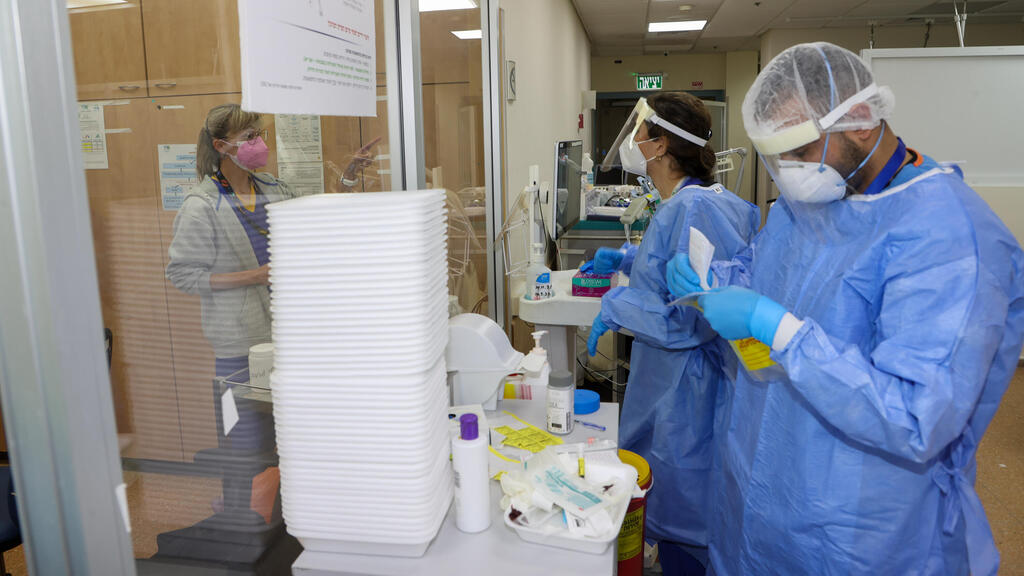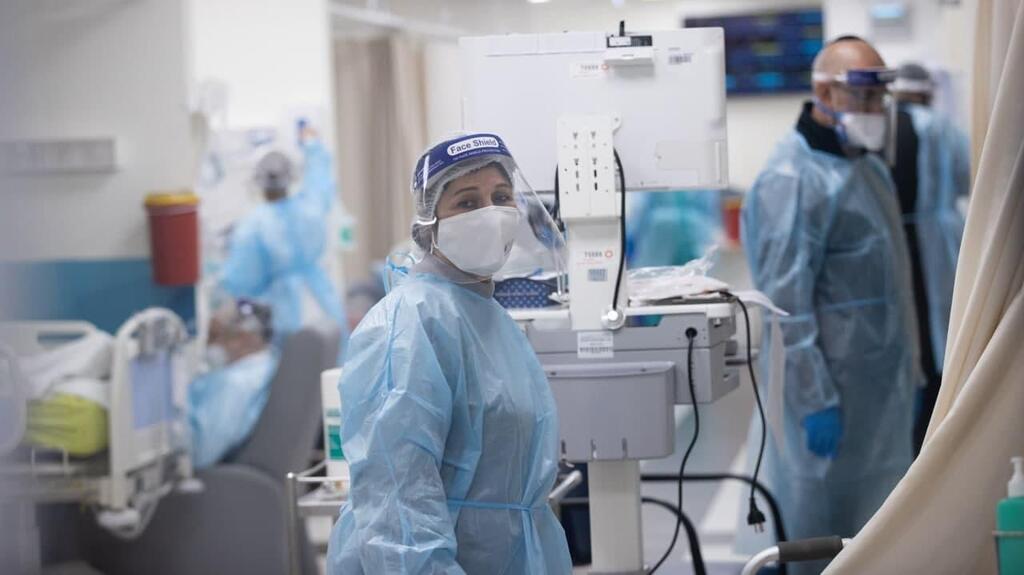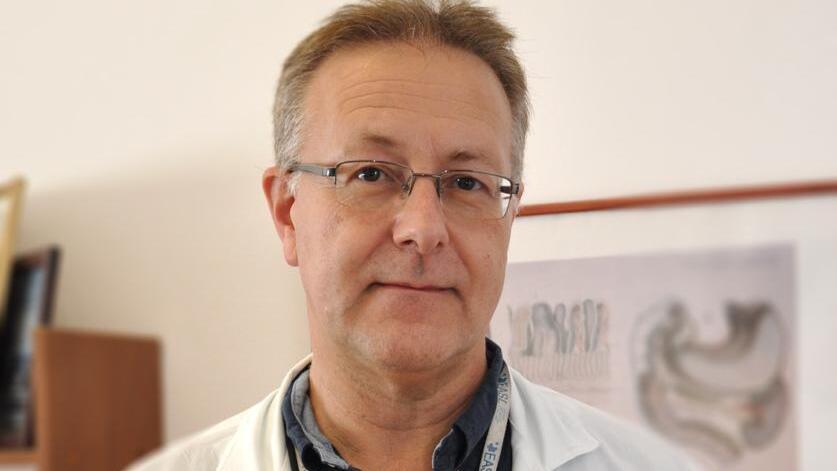Getting your Trinity Audio player ready...
Israel’s hospitals on Sunday warned of their inability to cope with the influx of patients caused by the spread of the highly transmittable Omicron variant of coronavirus.
According to several hospitals, the Omicron's spread, consequent surge in COVID cases, uptick in seriously ill coronavirus patients, as well as the frequent quarantine of medical workers - have all brought the health system and its workers to the brink.
The Kaplan Medical Center was forced to close its gates to ambulances due to an overload of patients and a lack of medical staff, many of whom are in quarantine due to exposure to COVID.
Kaplan’s dedicated COVID ward is currently full to capacity with 80 coronavirus patients.
According to several staffers, even when space is made available, the wait for hospitalization can take hours, which is another sign of the system's inability to cope with the huge uptick in patients.
"There was a patient here who waited 12 hours for a hospital bed in the coronavirus ward," said Ronit Ilsar, the head of nursing in Kaplan's Emergency Medicine department.
“The truth is that we have been forgotten. At first they supported us and cheered us on. Today… the public no longer cares about COVID, and we were left with all the work,” she added.
Prof. Stephen Melnik, Director of one of the internal medicine wards at Kaplan, echoed Ilsar’s sentiment.
“Most patients are older, the most ill among them are not vaccinated or those who have not received the third dose of the vaccine and there are also two patients who received a fourth vaccine but fell ill shortly after.”
"The load is heavy, both professionally and physically. I mostly take my hat off to the auxiliary staff and the nurses who work and work for hours on end,” said Melnik
The director of Hadassah Medical Center in Jerusalem, Prof. Yoram Weiss, says that no less than 380 employees are in quarantine.
"The result is that we are constantly compromising on the nursing care for patients," says Weiss, adding that despite the infection spike, the illness itself seems milder.
"We have 140 patients, but unlike the Delta wave, the illness is less severe,” said Weiss, who estimates that the wave of infections will begin to subside towards the end of next week, but the relief in the hospitals will be felt only later.
“It usually takes two weeks for hospitals to feel the calm certainly when it comes to critical care and intensive care. That is something to keep in mind.”
The panel of health experts, advising the cabinet on the pandemic, warned on Sunday of diminishing level of health care in hospitals in light of the surge of COVID patients and the rising number of medical teams absent due to the virus.
The panel also said that special measures were needed to protect the population at risk from infection with the fast spreading Omicron variant.
The panel said the government must provide means to ensure a Green Pass that includes proof of vaccines or negative tests for mass crowded events and venues catering to the elderly population.





